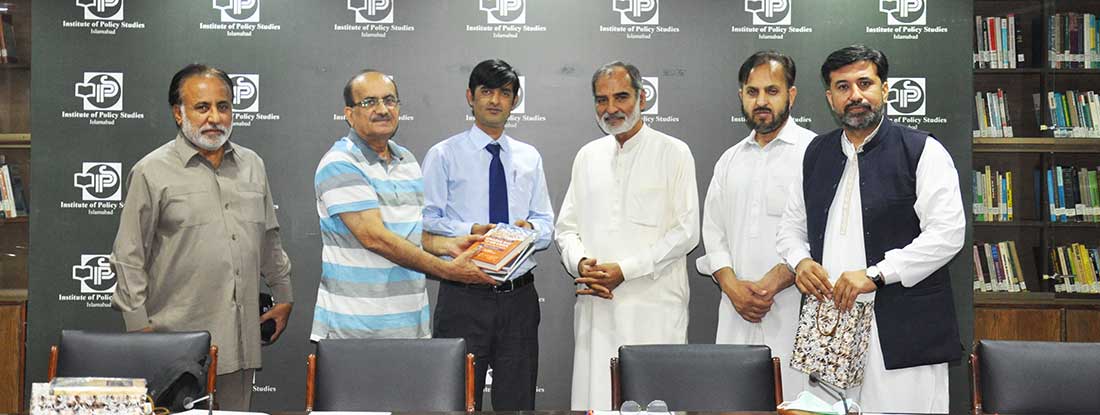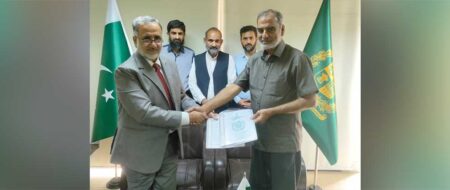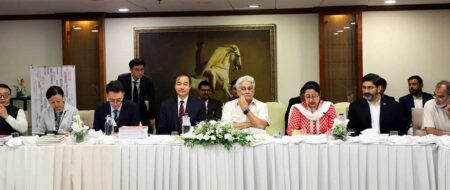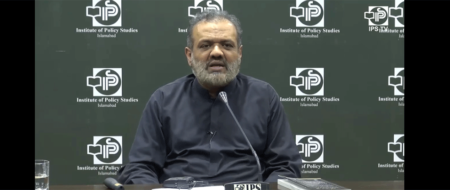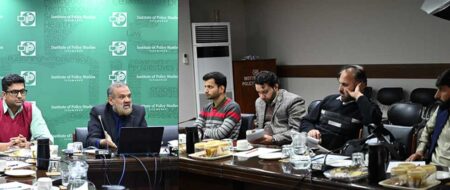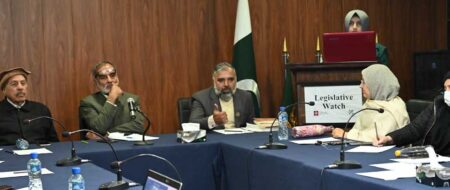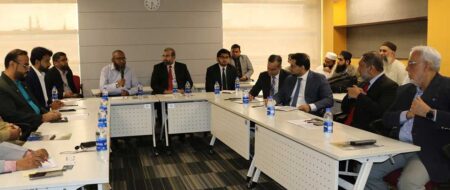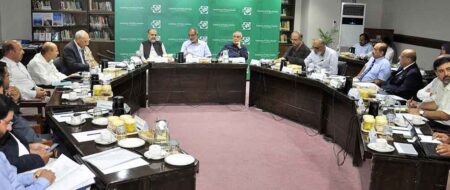IPS, NUML delegates explore areas for collaboration
A two-member delegation from National University of Modern Languages (NUML) visited IPS on April 15, 2022 to jointly explore areas for future collaboration, particularly in the domain of governance and public policy.
The visitors from the University included Dr Mustafeez Ahmed Alvi, dean, Social Sciences and Dr Syed Waqas Ali Kausar, HoD, Governance and Public Policy. IPS was represented in the meeting by its chairman Khalid Rahman, GM Operations Naufil Shahrukh, Manager Outreach Shafaq Sarfraz, and the Institute’s research faculty, whereas senior academician, policy practitioner and member, IPS National Academic Council Dr Syed Tahir Hijazi was also present on the occasion.
Introducing different ongoing programs of the Institute to the visitors, Naufil Shahrukh highlighted the role of IPS as a bridge, catalyst, and facilitator between researchers and policy circles. He also accentuated over the Institute’s interests in the establishment of a policy lab where different policy experts, practitioners, researchers and institutions would be able to interact and engage on a variety of research topics.
The visiting delegates spoke about the widening gap between research & implementation within the country and pointed it out as one reason that demotivates students from undertaking innovative and pragmatic research endeavors. They also expressed their interest in benefitting from the Institute’s experience in this regard through the exchange of knowledge and productive ideas, alongside other joint initiatives.
Dr Tahir Hijazi pointed out the lack of developmental news in the media as another reason that demotivates student, the rectification of which, according to him, could encourage and excite young minds towards pursuing innovation and new developmental ideas for their research works.
At the end of the meeting, Rahman stressed the need of brainstorming research ideas over indigenous needs before actually conducting the research work. He also stressed on establishing practical linkages between academia, relevant state departments and other stakeholders to make the research work more relevant, applicable, and in line with the contemporary needs.


